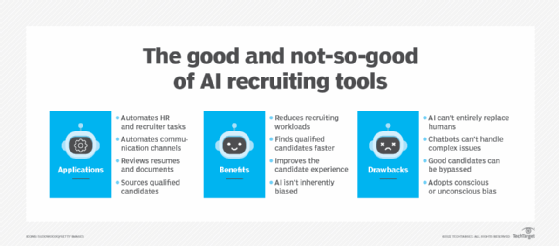A Master’s degree in Computer Science is an advanced academic qualification that equips individuals with specialized skills and knowledge in the field of computing. It goes beyond the fundamentals to delve into specific areas of computer science such as software engineering, artificial intelligence, data analytics, and cybersecurity.
Toc
Introduction of Computer Science Master

In today’s digital world, computer science is at the heart of innovation and technological advancement. With the increasing reliance on technology in various sectors, the demand for skilled computer science professionals is higher than ever. Pursuing a master’s degree in computer science can elevate your expertise, enhance your career prospects, and position you at the forefront of this dynamic field.
What is Computer Science Master Program
A Computer Science Master’s program is an intensive educational experience designed to deepen your understanding of core and advanced topics in the field. The curriculum typically encompasses a blend of theoretical foundations and practical applications, allowing students to build on their existing knowledge while exploring new and emerging technologies. Courses might include advanced algorithms, machine learning, cloud computing, and network security, among others.
One of the significant aspects of a Master’s program is the opportunity for specialization. Students can focus on areas that interest them most, such as artificial intelligence, where they can learn about neural networks and natural language processing, or cybersecurity, where they can gain expertise in protecting systems from cyber threats. This tailored approach ensures graduates are well-prepared to meet the specific demands of their chosen career paths.
In addition to coursework, many programs also incorporate research projects, internships, or capstone projects, providing hands-on experience and the chance to work on real-world problems. These practical components are invaluable, as they allow students to apply their theoretical knowledge to practical scenarios, enhancing their problem-solving skills and readiness for the workforce.
The Value of Specialized Knowledge
One of the key advantages of earning a master’s degree in computer science is the opportunity to gain specialized knowledge. Whether your interest lies in artificial intelligence, where you can explore machine learning algorithms and neural networks, or cybersecurity, where you learn to protect systems and data from malicious attacks, a master’s program offers in-depth coursework and practical experience. This specialization not only makes you a more attractive candidate to employers but also allows you to contribute meaningfully to your chosen field.
Key Benefits of Pursuing a Computer Science Master’s Program

Acquiring Advanced Knowledge and Skills
In a rapidly evolving technological landscape, staying ahead of the curve is paramount. A Computer Science Master’s program provides unparalleled opportunities for professional growth and career advancement. By acquiring advanced knowledge and skills, graduates are well-positioned to take on leadership roles, drive innovation, and make significant contributions to technological advancements in various industries.
Enhanced Earning Potential
One of the most compelling reasons to pursue a master’s degree in computer science is the potential for a higher salary. According to industry reports, professionals with a master’s degree tend to have significantly higher earning potentials compared to those with just a bachelor’s degree. This increase in salary can be attributed to the advanced skills and expertise that master’s graduates bring to their roles, making them valuable assets to their employers.
Networking and Collaboration Opportunities
Another significant benefit of enrolling in a Computer Science Master’s program is the wealth of networking opportunities it affords. Students have the chance to interact with peers, professors, industry professionals, and alumni, creating lasting professional connections that can be invaluable throughout their careers. Collaborative projects and group work also foster a sense of community and teamwork, which are essential skills in any professional setting.
Contributions to Research and Innovation
Many master’s programs emphasize research, encouraging students to engage in cutting-edge projects that can lead to significant technological breakthroughs. Participating in research not only hones critical thinking and problem-solving skills but also allows students to contribute to the body of knowledge in their field. Whether it’s developing new algorithms, exploring advanced cybersecurity measures, or pioneering advancements in artificial intelligence, the research undertaken during a master’s program can have far-reaching implications.
Flexibility and Adaptability in Career Choices
A Master’s in Computer Science opens doors to a wide array of career opportunities. Graduates are not confined to traditional roles within the tech industry; they can find positions in healthcare, finance, education, public policy, and more. The versatility of a computer science degree equips graduates with the skills to adapt to various roles and industries, ensuring long-term career flexibility and sustainability.
2. https://alightmotion.top/elevating-cybersecurity-defenses-nist-incident-response-insights/
3. https://alightmotion.top/unlocking-efficiency-growth-with-legal-ai-tools-a-guide-for-attorneys/
4. https://alightmotion.top/the-rise-of-ai-unlocking-sales-success-with-ai-sales-tools/
Understanding the Curriculum and Admissions Process

The exact curriculum and admissions process for a Master’s in Computer Science vary depending on the university or program. Generally, most programs require applicants to have a bachelor’s degree in computer science or a related field and meet certain GPA requirements. Some universities may also require GRE scores, letters of recommendation, and a statement of purpose.
Core and Elective Courses
Core courses in a Computer Science Master’s program typically lay a strong foundation in essential areas of the discipline. These courses often cover advanced algorithms, data structures, databases, operating systems, and software engineering principles. Students gain a deeper understanding of these fundamental topics, which are crucial for solving complex problems and developing innovative solutions.
In addition to core courses, elective courses offer students the flexibility to tailor their education to their interests and career goals. Electives may include specialized subjects such as quantum computing, big data analytics, human-computer interaction, robotics, and mobile application development. These courses allow students to explore niche areas and gain expertise in specific domains, enhancing their overall skill set and making them versatile professionals.
Hands-On Experience through Projects and Internships
A critical component of a Computer Science Master’s program is the practical experience gained through projects and internships. These opportunities enable students to apply theoretical knowledge to real-world scenarios, working on industry-relevant problems and emerging technologies. Internships, in particular, provide invaluable exposure to the professional environment, helping students build networks and gain insights into the workflows of leading tech companies.
Thesis and Non-Thesis Options
Some programs offer both thesis and non-thesis options to accommodate different student preferences and career plans. A thesis involves conducting original research under the guidance of a faculty advisor, culminating in a detailed dissertation. This path is ideal for those interested in pursuing a Ph.D. or a career in academia and research. The non-thesis option, on the other hand, may involve additional coursework or a capstone project and is generally suited for students aiming to enter the industry directly after graduation.
Preparing for Global Opportunities
In an increasingly interconnected world, a Master’s in Computer Science can open doors to international career opportunities. Many programs emphasize global perspectives and provide students with the knowledge and skills needed to work in diverse, multicultural environments. Whether through study abroad programs, international internships, or collaborative research, students can gain a global outlook that prepares them for success in a variety of settings across the world.
Understanding the curriculum and the admissions process is a crucial step toward embarking on a rewarding journey in a Computer Science Master’s program. With a well-rounded curriculum, ample opportunities for specialization, and practical experiences that bridge the gap between theory and application, these programs offer the tools and knowledge needed to thrive in the ever-evolving field of computer science.
Case Study Integration

John Smith – Artificial Intelligence
John Smith’s journey through his Master’s in Computer Science focused heavily on artificial intelligence (AI), showcasing the real-world impact of advanced study and research in this field. Initially propelled by a fascination with machine learning algorithms, John immersed himself in both the theoretical and practical aspects of AI.
Innovating with AI in Healthcare
For his thesis, John chose a challenging and highly impactful project: leveraging AI to improve diagnostic accuracy in medical imaging. Collaborating with a local hospital, he developed and trained a deep learning model capable of detecting early signs of tumorous growths in MRI scans more accurately than traditional methods. This breakthrough not only demonstrated the practical applications of AI in healthcare but also underscored the importance of interdisciplinary collaboration.
Industry Experience and Networking
During his program, John also secured a summer internship at a leading tech company known for its cutting-edge AI research. This opportunity allowed him to work alongside seasoned professionals, refine his skills, and contribute to significant projects involving natural language processing and autonomous systems. Through networking events and company projects, John built connections that would later prove essential in his professional career.
Contributing to Open Source and Community
Recognizing the importance of giving back to the community, John became an active contributor to several open-source AI projects. His involvement not only advanced his understanding of complex AI systems but also earned him recognition and respect in the tech community. These contributions provided additional hands-on experience and showcased his capability to work collaboratively on large-scale projects.
3. https://alightmotion.top/the-rise-of-ai-unlocking-sales-success-with-ai-sales-tools/
4. https://alightmotion.top/unlocking-efficiency-growth-with-legal-ai-tools-a-guide-for-attorneys/
John Smith’s case exemplifies how a Master’s in Computer Science, with a focus on artificial intelligence, can lead to groundbreaking research and significant professional growth. His dedication and accomplishments highlight the transformative potential of advanced education, fostering innovation and expertise that extend far beyond the classroom.
Unpacking the Unique Selling Points

Personalized Learning Paths
One of the unique selling points of a Master’s in Computer Science program is the emphasis on personalized learning paths. Students are encouraged to tailor their educational journey according to their interests, expertise, and career aspirations. Whether passionate about cybersecurity, cloud computing, or bioinformatics, students have the flexibility to choose courses, projects, and research topics that align with their professional goals. This customization ensures that each student can delve deeper into their chosen niche, gaining specialized knowledge and skills that set them apart in the job market.
Cutting-Edge Research Facilities
Access to state-of-the-art research facilities is another significant advantage of pursuing a Master’s in Computer Science. Leading universities often boast advanced laboratories, high-performance computing clusters, and specialized equipment that students can utilize for their research and projects. These resources facilitate cutting-edge investigations into diverse areas such as AI, cryptography, and quantum computing. The hands-on experience with top-tier technology prepares students to tackle real-world challenges with confidence and creativity.
Interdisciplinary Collaboration
Interdisciplinary collaboration is increasingly becoming a hallmark of effective computer science education. By fostering partnerships with departments like medicine, business, and engineering, Master’s programs enable students to engage in cross-disciplinary projects that drive innovation and progress. Working alongside peers from different backgrounds broadens students’ perspectives, enhancing their problem-solving abilities and opening up new avenues for research and development.
Robust Alumni Network
A robust alumni network is an invaluable asset for current students and recent graduates. Universities with well-established computer science programs typically have extensive networks of successful alumni who are willing to offer guidance, mentorship, and job opportunities. These connections can greatly influence students’ career trajectories, providing them with insider access to industry insights, job openings, and professional advice. Engaging with alumni can also inspire students, showcasing the diverse career paths that a Master’s in Computer Science can lead to.
Supporting Entrepreneurial Ambitions
For those with entrepreneurial ambitions, many Master’s programs offer resources and support to help students launch their own tech startups. From business incubators and seed funding to mentorship from successful entrepreneurs, universities provide a nurturing environment where innovative ideas can flourish. Courses on entrepreneurship, business strategy, and venture capital further equip students with the knowledge they need to transform their concepts into viable companies. This support system encourages innovation and empowers students to become leaders in the tech industry.
By providing personalized learning paths, cutting-edge research facilities, opportunities for interdisciplinary collaboration, a robust alumni network, and support for entrepreneurial ambitions, a Master’s in Computer Science stands out as a comprehensive program designed to cultivate the next generation of tech leaders and innovators.
Conclusion
Pursuing a Master’s in Computer Science is not merely about acquiring technical expertise; it also involves the development of critical soft skills that are essential in today’s dynamic work environment. Effective communication, for example, is crucial for articulating complex ideas clearly and persuasively, whether in academic papers, industry reports, or team meetings. The ability to collaborate seamlessly with diverse teams—often comprised of individuals from various disciplines and cultural backgrounds—enhances a graduate’s versatility and adaptability in global settings.
Moreover, cultivating a strong ethical framework is imperative as technology continues to intersect with numerous aspects of daily life. Master’s programs often incorporate coursework and discussions around the ethical implications of AI, data privacy, and cybersecurity, preparing graduates to make responsible decisions that consider both the societal impacts and the technological advancements. This ethical consciousness is vital for building trust and credibility in an era where technology plays an increasingly prominent role.
Lastly, the program encourages students to engage in lifelong learning, a necessity in the rapidly evolving field of computer science. Access to continual professional development opportunities, such as workshops, certifications, and conferences, ensures that graduates remain at the forefront of technological innovation and are equipped to handle emerging challenges and opportunities. Through a blend of technical mastery, ethical awareness, and continuous growth, a Master’s in Computer Science prepares graduates to make significant and lasting contributions to the tech industry.














